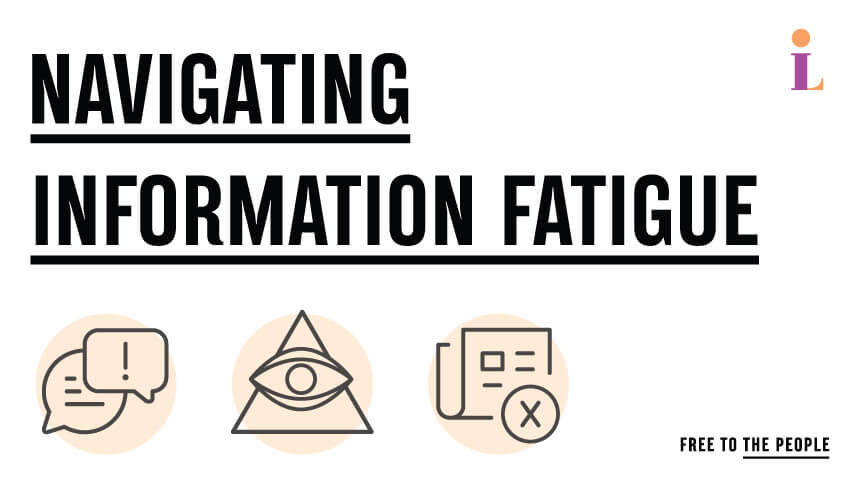During this two-part series, our presenter shared the ways in which social media has contributed to information fatigue, and what we can do to take back control over our digital lives. We provided resources and offered guidance on the subtle effects social media has on our lives, how our reliance on it influences society, and how we can be more conscientious users of this technology. You can view the recording of our Navigating Information Fatigue programs on our CivicCLP YouTube playlist.
Presenter: Calum Matheson, PhD – Assistant Professor of Public Deliberation and Civic Life and Director of Debate (University of Pittsburgh). To learn more about Calum’s work, click here.
Social Media & Society
Social Media and Me (Addiction by Design)
The COVID-19 pandemic has further increased our reliance on social media and the Internet for information. This development, combined with underlying political partisanship, has created a breeding ground for disinformation, conspiracy theories, and information overload. Carnegie Library of Pittsburgh has long provided resources for the best-quality information in the service of the public in Pittsburgh and beyond.
This 3-part program teaches strategies to navigate the flood of information and deception to help make better decisions with better information—about COVID-19 or any decision we face in our complicated lives.
Presenter: Calum Matheson, PhD – Assistant Professor of Public Deliberation and Civic Life and Director of Debate (University of Pittsburgh). To learn more about Calum’s work, click here.
Making Good Arguments
Conspiracies!
Scams and Hoaxes
Fact-Checking Sites:
- FactCheck.org – Annenberg Political Factcheck – a project of the Annenberg Public Policy Center. ‘Monitors the factual accuracy of what is said by major U.S. political players.’
- FactChecker (Washington Post) – Weekly blog from the Washington Post.
- PolitiFact.com – From the St. Petersburg Times and Congressional Quarterly. Has a ‘Truth-O-Meter’ scorecard checking the attacks on the candidates (includes explanations). Also see their Punditfact page.
- Snopes.com – “Oldest and largest fact-checking site on the Internet”.
- PunditFact – “Dedicated to checking the accuracy of claims by pundits, columnists, bloggers, political analysts, the hosts and guests of talk shows, and other members of the media.”
- Duke Reporters’s Lab – The Reporters’ Lab is a center for journalism research in the Sanford School of Public Policy at Duke University.


